WP1: Drivers of Social and Technology Innovations
Objectives
- To analyse consumer behaviour and preference heterogeneity in climate and energy models.
- To examine new business/service models and innovative technologies in impact assessment modelling.
- To achieve theoretical break-throughs in building behavioural foundations for climate change adaptation.
- To address the challenges of rapid development of low-carbon technologies and renewable energy resources.
Task 1: Social innovation and the behavior of consumers and firms
We analyse energy demand and determinants of energy savings, including flexibility of demand with respect to time of use pricing and acceptance of high load restrictions. Consumer preferences and behavioural patterns investigated in this task combine economics and social-psychological behavioural theories, including rational inattention, bounded rationality, and other biases that potentially contribute to the energy efficiency gap. We examine barriers to and the potential for adoption of advanced low carbon technologies, including alternatively fuelled vehicles. We model uncertainty both on the demand and supply (technology) sides. This task also includes the estimation of parameters for climate change and energy transition modelling. The econometric techniques are investigated and their properties studied on a wide range of case studies. This task utilizes wide expertize of microeconomists at GEOCEP institutions.
Task 2: New business and services models
We investigate the potential for new business and services models of environmentally friendly and energy-efficient production connected with fundamental innovations in the energy industry and consumption (certification of origin for renewable energy, sharing goods), paying attention to the role of prosumers (prosumer-to-grid models), peer-to-peer models, small-scale smart grids, information and communication technologies and blockchain-based energy service models. This task connects with management, psychology and other social sciences at GEOCEP institutions.
Task 3: Adaptive behaviour
This task model the adaptive behaviour of consumers and firms to minimise adverse effects of climate change (such as the installation of air-conditioning to reduce the impact of heatwaves, changing tourism patterns and vaccinations to reduce health risks from vector-borne diseases, etc.). We also analyse preferences for and acceptability of competing and complementary adaptation measures (nature-based, hard vs. soft measures). Approaches to the incorporation of adaptations into impact assessment and economic models are enriched in collaboration with WP 2 and with natural scientists at GEOCEP institutions.
Task 4: Renewable energy
This task addresses economic modelling of renewable energy resources, in particular solar, wind and bioenergy. We deal with the intermittency of wind and solar. We analyse the impact of public policies such as carbon taxes, feed-in tariffs and portfolio standards on renewable energy supplies. Our modelling approach also covers the use of biofuels in transport and competition in demand between power/heat and transport sectors for biofuels.
Published results
Alberini, Anna, Levan Bezhanishvili, Milan Scasny, Milan. 2023. Published. ‘Heterogeneous Effects of Government Energy Assistance Programs: Covid-19 Lockdowns in the Republic of Georgia.’ Working paper 2023/37. Prague: Institute of Economic Studies, Charles University.
Benes, Ondrej, Karel Janda. 2022. ‘Environmental dimensions of biofuels’ Working paper ZBW. Kiel: Leibniz Information Centre for Economics.
Doile de Doyle, Gabriel Nasser, Paolo Rotella Junior, Luiz Célio Souza Rocha, Priscila França Gonzaga Carneiro, Rogério Santana Peruchi, Karel Janda, Giancarlo Aquila. 2022. ‘ Impact of Regulatory Changes on Economic Feasibility of Distributed Generation Solar Units.’ Working Paper 2/2022. Prague: Institute of Economic Studies, Charles University.
Harutyunyan, Artur, Karel Janda. 2022. ‘Multinationals and Sustainable Attitude to Nutrition and Eating Habits.’ Working paper. Kiel, Hamburg: ZBW–Leibniz Information Centre for Economics.
Janda, Karel, O. Benes. 2022. 'Biofuel Technologies and Policies .’ Working Paper. Kiel: ZBW-Leibniz Information Centre for Economics.
Janda, Karel, E. Michalikova, L.C.S. Rocha, Paolo Rotella Junior, B. Schererova, David Zilberman. 2023. ‘Review of the Impact of Biofuels on US Retail Gasoline Prices.’ Energies, 16(1): 428.
Janda, Karel, Ladislav Krištoufek, Barbora Schererova, David Zilberman. 2022. ‘Price transmission and policies in biofuels-related global networks.’ Working paper 5/2022. Prague: Institute of Economic Studies, Charles University.
Janda, Karel, Zhang, Binyi 2022. ‘The impact of renewable energy and technology innovation on Chinese carbon dioxide emissions.’ In Regulation of Finance and Accounting: 21st and 22nd Virtual Annual Conference on Finance and Accounting. Prague: Springer, pp. 177-189.
Janda, Karel, Eva Michalikova, Luiz Célio Souza Rocha, Paulo Rotella Junior, Barbora Schererova, Jan Sila, David Zilberman. 2022. ‘Impact of Biofuels on US Retail Gasoline Prices: A Systematic Literature Review.’ Working Paper 2022/31. Prague: Institute of Economic Studies, Charles University.
Kashkarov, Daniil. 2024. 'Essays on Human Capital, Inequality and Technological Change'. Ph.D. diss. Prague: Charles University.
Kmeťková, Diana, Iva Zvěřinová, Milan Ščasný, Vojtěch Máca. 2025. ‘Acceptability of Meat Tax and Subsidy Removal by Meat Eaters: Insights from Five European Countries.’ Agricultural and Food Economics 13:13.
Nasser Doyle de Doile, Gabriel, Paulo Rotella Junior, Luiz Célio Souza Rocha, Karel Janda, Rogério Peruchi, Giancarlo Aquila, and Pedro Paulo Balestrassi. 2023. 'Impacts of Economic Regulation on Photovoltaic Distributed Generation with Battery Energy Storage Systems.' Journal of Energy Storage 72, Part B: 108382.
Pires, Arthur Leandro Guerra, Paulo Rotella Junior, Luiz Célio Souza Rocha, Rogério Santana Peruchi, Karel Janda, Rafael de Carvalho Miranda. 2023. ‘Environmental and financial multi-objective optimization: Hybrid wind-photovoltaic generation with battery energy storage systems.’ Journal of Energy Storage 66: 107425.
Renoir, Clément. 2023. ‘Economic Development, Risk Management, and Climate Policy.’ PhD diss. Zurich: ETH Zurich.
Sargsyan, Y., S. Turdaliev, S. van Koten. 2023. ‘The Heterogeneous Effects of Social Cues on Day Time and Night Time Electricity Usage, and Appliance Purchase: Evidence from a Field Experiment in Armenia.’ Working Paper 23/2023. Prague: Institute of Economic Studies, Charles University.
Turdaliev, Salim, Karel Janda. 2023. ‘Increasing Block Tariff Electricity Pricing and Propensity to Purchase Dirty Fuels: Empirical Evidence from a Natural Experiment.’ Eastern European Economics, 1-21.
Wekhof, Tobias. 2024. ‘The role of open-ended questions in narrowing the intention behavior gap for sustainable retail investors.’ Social Science Research Network, Working paper 4838449.
